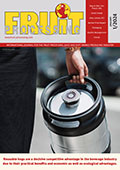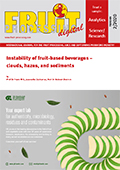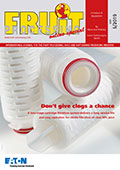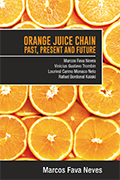Huhtamaki partners with RiverRecycle and VTT to develop technology to tackle floating river waste
Finding new ways to address our environmental challenges is reliant on our ability to foster innovation to find ways of driving systemic change.
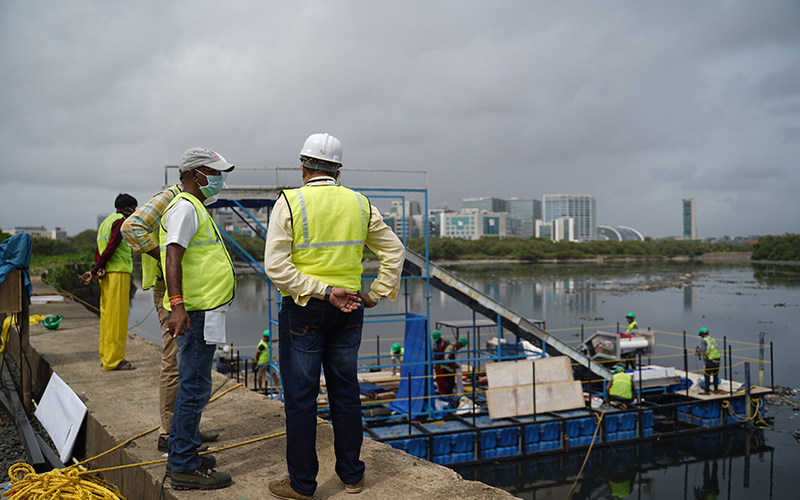
New technology river waste collector now operational on the Mithi River in Mumbai, India
Finding new ways to address our environmental challenges is reliant on our ability to foster innovation to find ways of driving systemic change. To support such innovation and progress towards circularity, Huhtamaki, a key global provider of sustainable packaging solutions for consumers around the world, donated € 600,000 to fund the development and piloting of a river waste collector, invented by the Finnish cleantech start-up RiverRecycle. The collector is an integral part of RiverRecycle’s solution to solve marine waste, one of the biggest global challenges of today. With Huhtamaki’s support, a prototype waste collector was built and tested in Finland. This was then transported to and assembled in Mumbai, where it is now operational and where it will be collecting waste from the Mithi River for the next 12 months.
“We believe in protecting food, people and the planet. We also believe that cooperation across the value chain with key stakeholders is needed to address global sustainability challenges, for example such as in this case marine plastics. If we want to drive systemic change, we not only need to support the development and commercialisation of innovation that can help stop waste from getting into the oceans, but we also need the monetisation of waste and incentivisation of local communities to improve their waste management practices,” says Thomasine Kamerling, Executive Vice President Sustainability and Communications at Huhtamaki.
“When operating in a circular economy, cooperation among different players is fundamental to sustainability. Huhtamaki funding enabled us to complete two of the three parts of our journey of transforming plastic waste into a resource, with the positive engagement of affected communities. Huhtamaki’s commitment is an example of how collaboration helps solve global problems such as plastic waste pollution,” says Anssi Mikola, CEO and Founder of RiverRecycle.
The Mithi River project is run by a global partnership between UNTIL (now known as UN Global Pulse), VTT Technical Research Centre of Finland Ltd, RiverRecycle and Earth5R, an India-based citizen-led environmental movement. In addition to building, setting up and operating the river cleaner for a year, Huhtamaki’s donation has been used to organise local hands-on workshops on effective waste management and recycling with a view to drive systemic change. The project also provides input to VTT Technical Research Centre of Finland on the floating waste and its seasonal variations that can be used to optimize clean-up operations and recycling processes for the future.
“The Huhtamaki funding enables the adaption of optical sensors and drones in the detection of floating plastic objects and differentiation of plastics from organic material. VTT’s contribution also includes pyrolysis test runs and assessing chemical recycling of the recovered plastic waste fractions. At a broader level we aim to enhance circular economy solutions for the global challenge of plastic waste pollution. In addition to the technology involvement, we also appreciate the collaboration between local partners and communities as an essential part of the successful project implementation,” says Jukka Sassi, Senior Scientist, VTT Technical Research Centre of Finland Ltd.
Huhtamaki’s ambition is to have 100 % of its products designed to be recyclable, reusable or compostable by 2030. In India, where Huhtamaki has 16 units and manufactures mainly high-quality flexible packaging that protect for example food, pharmaceuticals and personal and home care products, the Company has already several recyclable flexible packaging structures in the market under its Huhtamaki blueloop concept. In addition to the Mithi River project, Huhtamaki is contributing to the building of necessary recycling infrastructure by setting up a pilot recycling plant for flexible packaging in India which should be operational by the end of 2021.



